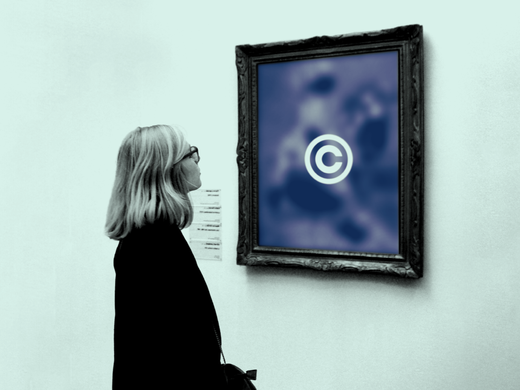Digital technologies and data have transformed our daily lives. At the same time, however, the massive release and consumption of data, especially personal data, have revealed profound governance gaps. Indeed, current governance arrangements over data and digital technologies are incoherent and fragmented nationally and internationally — where they even exist. There are vast and powerful vested corporate, national and geostrategic interests at play that have led to this fragmentation. Nowhere has this been more apparent than the geopolitical competition among China, the European Union and the United States for technological supremacy and control over the digital economy: both to capture the economic rents from digital technologies and to dominate the standard setting that underpins the values on how these technologies are used. On the surface, these geopolitical tensions against a background of differences in values would appear to make cooperation on digital governance difficult. Yet the differences among them, and other jurisdictions, may not be as stark as they first appear. However, our current supranational institutions are not well equipped to handle the breadth of the digital issues at play and to bridge the differences. The time is nigh for a new Bretton Woods institution. The Group of Twenty (G20) must now exercise renewed leadership and create a Digital Stability Board (DSB) (Fay 2019).
Fragmentation Has Many Profound Implications and Consequences
The data value chain — big data, artificial intelligence (AI) technologies and their uses, for example, by digital platforms — creates a complicated interaction of rules, regulations and gaps nationally and internationally that have deep implications for virtually all aspects of our daily lives. These interactions include data governance, privacy and cybersecurity; consumer protection, competition and intellectual property; mis- and disinformation, online violence and content moderation; taxation; trade; and the interactions among these and many other policy areas. Further, the rules and regulations can differ substantially by firm, country and jurisdiction creating global spillovers — both intended and unintended. The consequences of this fragmentation are profound for individuals and businesses as outlined in Fay (2021), United Nations (2019) and United Nations Conference on Trade and Development (2021) among others. One critical consideration is the lack of a comprehensive and coherent assessment of the risks, vulnerabilities and outcomes of the business models of the digital platforms, and in particular social media platforms, against a background of rising online harms that are being felt globally.
Meanwhile, the battle for technological supremacy might make the prospect for peaceful competition with China very slim. For example, both the European Union and China each champion data sovereignty and use regulations and legislation to achieve that goal, but they do so from a very different set of values. Moreover, their approaches contrast sharply with the laissez-faire industry-driven approach of the United States where many of the digital giants are headquartered.
At the same time, however, each jurisdiction is growing increasingly wary over the risks arising from digital technologies and data. These include how the social media platform giants are using and monetizing personal data and the implications for privacy; the implications of these platforms for market structures and the ensuing consumer protection and competition issues arising from data and digital technologies; and each is concerned with their implications for intellectual property, trade, cybersecurity and national security. Further, industry itself is calling for more harmonized global regulation. This might be seen as self-serving to reduce compliance costs, but digital firms are also struggling with the implications of their business models (and in some cases ignoring those implications) that need to be addressed through global governance.
However, even if these jurisdictions were able to overcome their differences, there are substantial spillovers and impacts from their governance decisions onto countries outside those jurisdictions that need to be addressed. This has been very evident in the vocal demand for reform of the international taxation of digital giants (Organisation for Economic Co-operation and Development 2021), but there are many other challenges, including a lack of control or input into decisions made in those jurisdictions and further, in many cases, little choice for many countries on which jurisdiction’s rules and regulations to follow. Finally, the reliance on relatively few digital giants to provide what amount to essential services is something that should be of global concern; for example, as seen in the recent outage of Facebook that had global implications and revealed the systemic nature of these digital giants.
Rohinton P. Medhora and Taylor Owen (2020) argue that a new Bretton Woods-style agreement is now necessary: “When world leaders came together in Bretton Woods, New Hampshire, in 1944, they laid the foundation for a model of global governance that would last for more than 70 years. To manage the far-reaching implications of digital technology and hyper-globalization, we must now pick up where they left off.” The need to do so has become even more urgent as we emerge from the pandemic where digital divides have been manifest nationally, regionally and globally.
A new Bretton Woods arrangement is a very tall order and might seem improbable in the current atmosphere of heightened geopolitical tensions. Yet that is exactly when remarkable progress has been achieved in the past, and we do not need to look too far into the past to find an example: the creation of the Financial Stability Board by the G20 to deal with regulatory lapses in the financial sector that contributed to the Great Financial Crisis.
Let’s Learn from the Recent Past
Financial regulatory reform serves as a pertinent example for ideas on how to move forward on global regulation of the digital space.1 The rise of global banks and insurers in the early 2000s that operated in virtually all jurisdictions, with opaque operations, rampant network effects alongside light-touch regulation contributed heavily to the Great Financial Crisis. G20 leaders recognized that it was essential to improve the regulatory footing and they took action by creating the Financial Stability Board (FSB) to promote reform of international financial regulation and supervision and with its creation, they put in place a process for globally harmonized minimum standards and improved transparency. And they did so against powerful and competing vested interests at the firm, national and regional levels. Leaders realized that a set of global standards with some variation to reflect different values would create a playing field in which all could benefit. More recently, big data and big tech have also led the FSB to consider the relationships between financial sector regulation and privacy, competition and consumer protection, which can also serve as a source of ideas for digital governance.
The FSB is not treaty based yet it has managed, and delivered, the vast global financial regulatory reform process. Its success derives from both its institutional structure and from its transparent multi-stakeholder participatory international forums that include policy makers, regulators, standard-setting bodies and civil society. Its overall objectives are set by G20 leaders and it must report back to the G20 on progress against those objectives.
In a similar fashion, the DSB would also be a multi-stakeholder forum with a remit to create global governance for big data, AI and the digital platforms, while allowing national variation to reflect different values and cultures (Fay 2021). It would shape global standards, regulations and policies across the platform economy; advise on best practices, as well as share insights about the regulatory and policy actions needed to address risks and vulnerabilities in a timely manner.
More specifically, the broad objectives and structure for the DSB would be the following:
- Coordinate the development of international governance in standards, regulations, principles and policies across the big data value chain.
- Monitor the implementation of principles, standards and policies by jurisdictions and firms. Perhaps in conjunction with other international organizations.
- Assess vulnerabilities and risks arising in the digital economy, and where international coordination is required.
- Innovate digital governance by taking the lessons learned and disseminating them.
- Ensure that this work feeds into other organizations and coordinate outreach to ensure full participation of developing countries and civil society.
Importantly, the DSB is scalable. It can start with a specific area and scale to other areas with a goal to ensure coherence in all areas as they are tackled.
The DSB Can Start with the Coordination of Standard Setting for Digital Technologies
Concretely, the DSB could begin its work by coordinating standard setting for digital technologies along the data value chain. Given that laws and regulations typically lag technology, standards and soft law can help to fill the gap. Indeed, standards tend to get imbedded in regulations at a later point in time and are referred in international treaties. Standards are required for the many dimensions of data, including the need to define data control/ownership, portability, sharing, removal, tracking, cyber, encryption/anonymization, access, use, quality, storage, security and so on. There are specific issues related to algorithms that need to be addressed, including ethical use and bias, tagging, explainability, interoperability, safety, risk and others. In the last part of that value chain there is a large number of areas where specific standards are required, for example, around transparency, content dissemination, competition, privacy, interoperability and so on.
There are many initiatives under way in each of these areas, and many of them are excellent. However, greater globally coordinated action is required among standard-setting organizations. Michel Girard (2020) argues that like the advent of the internet leading to the creation of the Internet Engineering Task Force, standard setting for the digital realm will require the creation of a new body, working groups and permanent funding to carry out its tasks. Consistent with this notion, the DSB could initially create a Digital Standards Working Group with a mandate to set internationally harmonized technical and governance standards for the data value chains.
Finally, starting discussions at the DSB in a more technical area such as standard setting may create both scope to move forward on a fundamental governance area and also create the space to deal with political issues by bringing countries and other stakeholders to the table. Indeed, a global discussion on standards in fact would do both since standard setting is also a battle over the rents accruing from technology as well as the values that should govern the uses of technology. Indeed, a well-known phrase is that “first-tier enterprises make standards, second-tier enterprises make technology, and third-tier enterprises make products.”
Conclusion
The DSB is a starting point to harmonize and advance governance of digital technologies. There is resistance to new forms of regulation and ways of doing business in the technology platform space, just as the creation of the FSB and the implementation of the regulatory reforms drew opposition. But reform efforts are essential to achieve the full benefits and minimize the profound risks associated with digital technologies.
To move this important governance framework initiative forward requires the formation of a new institution. The current Bretton Woods institutions have their hands full; moreover, they do not singly or collectively span the range of issues the digital era has spawned even as they embark on a closer working relationship. Undertaking reform in the digital sphere requires creating a new institution and would also both signal and acknowledge the importance of setting global standards and policies for big data, AI and the platforms.
The G20 is the ideal body to champion the creation of a new institution. The G20 was created to bring in more voices to global governance discussions. The G20 includes discussion on forward-looking and “knotty” issues that straddle existing structures and processes. The G20 has experience in mandating a new organization and setting its priorities. The G20 has a goal to build digital trust. The G20 can now create a new institution to build this trust.



